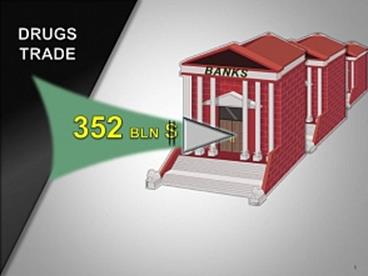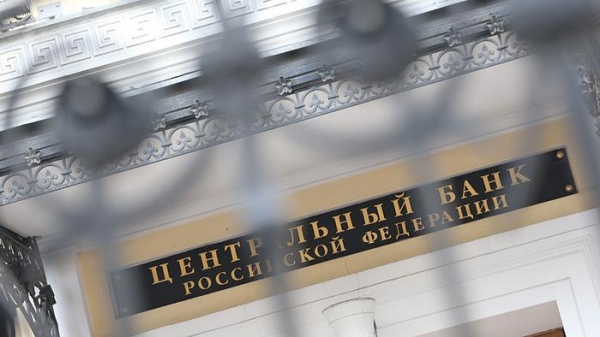
Experts believe that before the end of the Stripping still far
Over the past three years, from June 2013, when the Chairman of the Central Bank was appointed Elvira Nabiullina, the domestic financial market has undergone significant transformation and has survived several serious crises. During this time, the market left a total of nearly 570 financial institutions (banks, asset managers, pension funds, insurance companies). These calculations specifically for the “News” was prepared by the National rating Agency (NRA). The cleanup of the financial sector led to the increase of players that have significantly reduced competition, although the monopoly, according to the experts, is still far away.
Last week marked three years since 24 June 2013 when Elvira Nabiullina took over as Chairman of the Bank of Russia. In such a short time in the life of the financial system, there have been several crises, the Central Bank became the regulator finrynka, concentrated in his hands control over all financial sectors. The latter, in turn, has resulted in greatly increased work of the Central Bank of cleansing the sector from unfair and weak players, the fight against legalization of illegally obtained funds, illegal cashing in and a conclusion of money abroad. Significantly tightened, and requirements for, indicators of financial stability of banks, increased standards of corporate governance and risk management.
Such significant changes in the regulatory and legal landscape has resulted from the financial business took a very large number of players and companies. Calculations show that Li, from 25 June 2013 to 25 June 2016 a total of 568 was abolished financial institutions, including: 289 banks and non-Bank credit institutions, 159 insurance companies, 28 pension funds (NPF), 92 managers (AMS). In this case, statistics for the issuance of licenses can not be compared with statistics of reviews and liquidations. In three years there were only five banking licenses, six licenses non-Bank credit institutions, 37 licenses managing companies, noted in the NRA.
The greatest losses of the financial system incurred in the cleanup of the banking market. Since June 2013, the aggregate negative capital of the banks whose license has been terminated, exceeded 1.1 trillion rubles. Over the first six months of 2016 negative equity 31 Bank with revoked license amounted to 359 billion.
— The departure of a large number of players in the financial market with the continued growth of assets leads to an increase in the concentration of assets by the largest players and the consolidation of the financial market. Now the Russian banking system by the ratio of monopolization moved from markets with the lowest concentration in the category of markets with moderate concentration, — noted the Director of Department of financial ratings of the NRA Karina Artemyev.
She pointed out that the total assets of the 25 largest Russian banks more than 60 trillion rubles, which is 81% of the assets of the entire banking system. Similar processes of consolidation and increased concentration are all key segments of the financial market, stressed Artemyev.
In her opinion, the key risks of increased concentration in key segments of the financial market are risk overall reduce competition and increase the dependence of the market from the financial condition of major players.
— Cleanup of the financial sector has both pluses and minuses, ” maintains economist Anton tabah. — On the one hand, the Central Bank cleared the market from the most “toxic” players in all segments, excluding microfinance institutions. On the other hand, there is really a high concentration. Particularly high levels observed in the banking system and pension Fund. But I would not say that even there, now we can talk about the dangers of monopolization.
Karina Artemieva pay attention to that if to assess the level of competition in the whole banking sector, and within groups (that is, only between banks within their market share or only between banks with foreign capital), it is possible to draw some curious conclusions.
For example, according to the calculations, the competition between state-owned banks has not diminished and she still points to the oligopolistic structure of the market of state-owned banks. At the same time, if you look at private banks, the level of competition between them has decreased over three years by half (this also caused the departure of more than 250 players). Thus if we analyze the competition within the group of leaders, that is among systemically important banks, it even increased and intensified, shares his insights representative of the NRA.
According to the forecast Agency to complete the cleanup of the banking sector competition and the number of players on it will continue to decline, although so large and the scale of the losses is not expected and the impact of Central Bank actions on the market before the end of 2017, when the regulator had planned to complete the clearing segment will be limited.
— In General, the peak of activity for cleaning up the financial market, probably, has already passed. By next year the Russian financial sector to take a definitive view in terms of the major players and their market shares. However, the strengthening of controls over the movement of Finance is likely to continue, — agrees the managing partner of “2K” Tamara Kasyanova.
However, the head of Sberbank German Gref expressed the opinion that we can hardly expect a reduction in the rate of revocation of licenses of the Central Bank, because it depends not so much on desire of the regulator, but also on the fact that many organizations simply do not fit into the new standards, including in terms of governance risk management. In this sense, the sweep will accompany self-cleaning of the financial system.
And it concerns not only banks. According to adviser to the President of the National Association of pension funds Valery Vinogradov, the further concentration in the market of NPFs although optional, but possible. In particular, small funds just can’t be profitable in the current environment. As for the groups, then the process of concentration affect the position of the regulator, which strongly recommends to conduct business not in the interests of the group and in the interests of clients.








